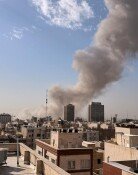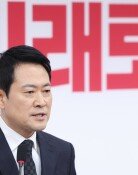Sending Left-Wing Long-Term Prisoners to the North, And Then?
Sending Left-Wing Long-Term Prisoners to the North, And Then?
Posted June. 20, 2005 03:01,
I cant understand why our government hasnt taken any South Korean prisoners of war (POWs) back home, while sending the left-wing long-term prisoners as whole to North Korea.
POWs and their families condemned the government for its little contribution to the return of POWs and said that they can endure the poverty they have faced after returning to the South, but that the ignorance of the people and the government to this issue have made their hearts seriously hurt.
Even though the government called for the return of POWs until the 1960s at Military Committee Meetings through the United Nations Command, since the 1970s, it has made little effort for their return.
However, after the return of Cho Chang-ho on October 1994, the first South Korean POW to escape from North Korea and a South Korean soldier in the Korean War, the government organized a committee for promoting the return of POWs that was headed by the personnel director of the Minister of National Defense. In January 1999 the national level body, a committee for the return of POWs taken in the Korean War that is supported by Ministry of National Defense, Ministry of Unification, and Ministry of Foreign Affairs and Trade, was finally established.
Once a meeting place for family members separated during the Korean War is set up at Mt. Geumgang, the government plans to organize family reunion of POWs and continuously call for international attention on the problems of POWs through international organizations.
Despite the fact that as many as 500 POWs are still living in the North under extremely poor living conditions, our government seems to have no idea about this. This is a very sad situation, said Cho yesterday.
He also said, Despite this, POWs being held in the North are continuing their lives in hopes of going back home some day, adding, For them, the government at least helps them meet death in their hometowns.
Sources from organizations which are working for the return of POWs said that the government must learn a lesson from the U.S. government that is very active on the return of POWs as well as their remains. From 1990 to 1994, a total of 211 remains of U.S. soldiers were returned to the U.S. from North Korea.
A source from the government said, We set up a committee of return for POWs in the Korean War many years ago and since then, we have made an effort for their return to South Korea. However, since North Korea doesnt admit the existence of POWs, little progress has been made in negotiations.
Chang Moo-hwan, 79, a third POW who returned to South Korea after the defection of Cho, said that due to worries over the lives of his wife and five children he left in North Korea, he suffers serious pain now.
Chang, who returned in October 1998, heard one year after his return that his family was taken somewhere.
Chang said yesterday, I feel guilty because my family might have been suffering great pain because of me. I want our government to just let me know whether or not they are alive.
Baek Young-suk, 49, the first child of Baek Jong-gi, a POW who died of malnutrition in North Korea in 1997, buried Baeks remains in his hometown last April in accordance with Baeks will, Please bury my bones in my hometown, Cheongdo, Gyeongbuk.
To keep his fathers will, Baek Young-suk escaped from the North to go to his fathers hometown, but her son was captured by Chinese authorities and her daughter was missing during her escape. She is raising money now to take her son and daughter back because she doesnt believe that the government which is indifferent to POWs problems would exercise any influence for their return.
Baek said, It is regrettable that the death of my farther is treated as such here, adding, The government should not neglect its duty any more. She complained that in the North, she suffered various discriminations because she is a child of POWs and that in South Korea, her fathers hometown also doesnt treats them in a fair way.
She submitted a petition to Ministry of National Defense calling for the enactment of a law that protects the children of POWs last February. Until now, she has only heard that this is under consideration.
Jae-Myoung Lee egija@donga.com weappon@donga.com




![[속보]이스라엘 “이란 공격” 국가비상사태 선포…테헤란 폭발음](https://dimg.donga.com/c/138/175/90/1/wps/NEWS/IMAGE/2026/02/28/133440981.1.gif)


